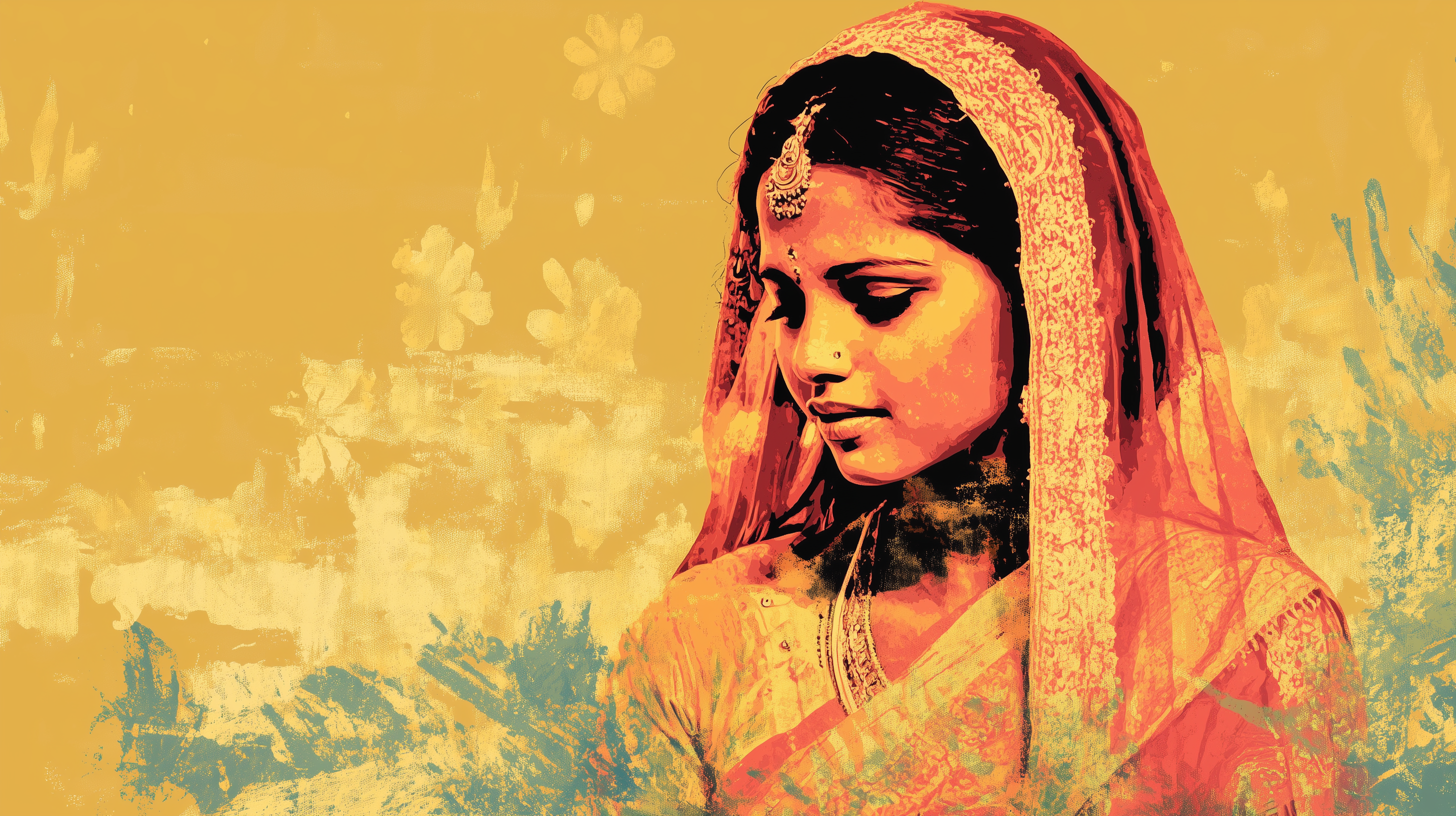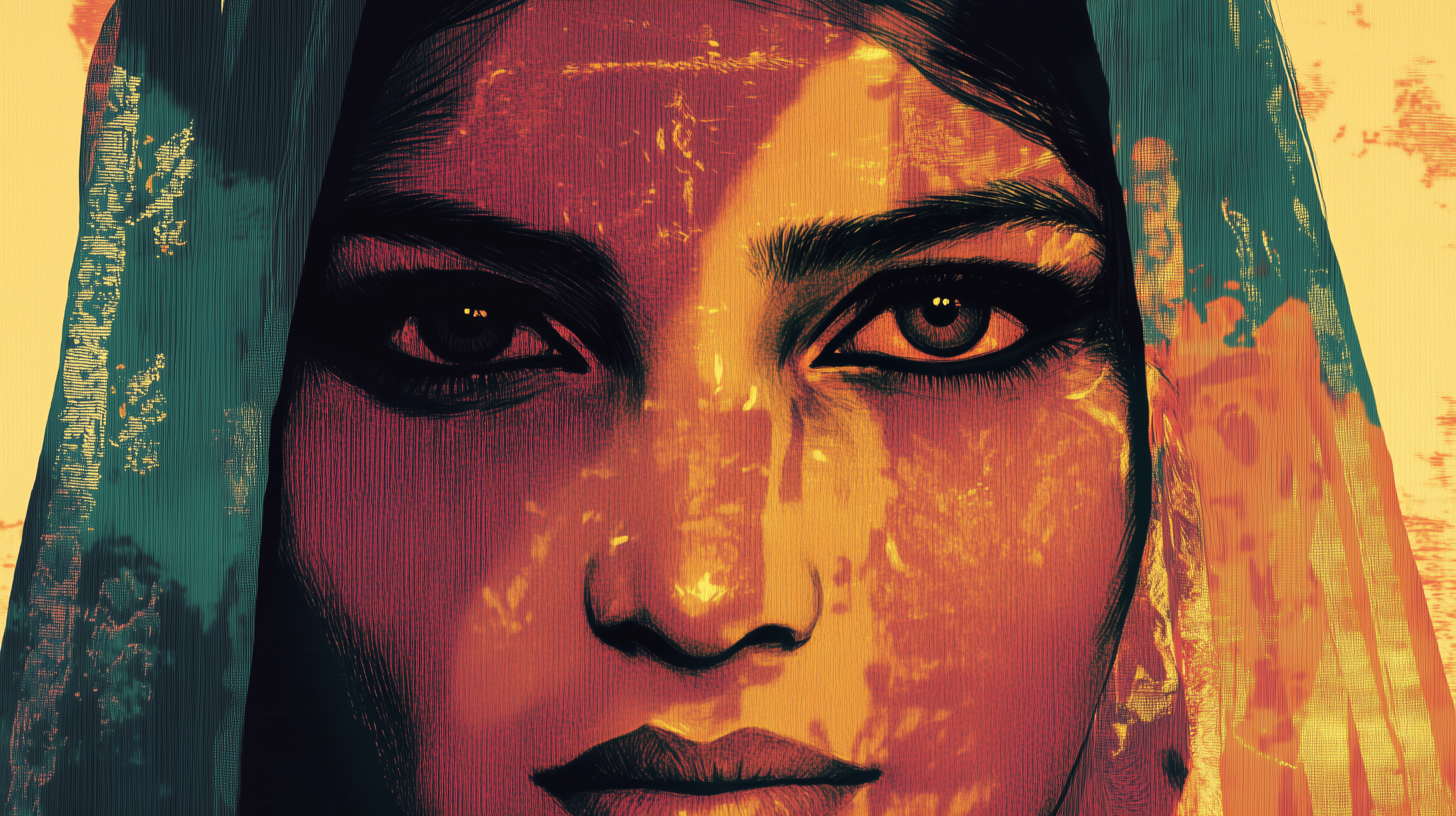In today’s day and age, women in South Asia are slowly learning to be confident, to set boundaries – instead of compromising all the time – not settling for less, and being vocal about what they’re not okay with. However, as with anything that involves women, this journey is over-complicated with many layers of societal expectations and misinterpretations. One of the most pervasive pressures we face is the expectation to marry by the age of 25. As a Bangladeshi woman, this societal norm has been a constant presence in my life, dictating the choices I make and the dreams I dare to pursue.
Cultural Traditions and Norms
Marriage in South Asian cultures is not merely a personal milestone; it is a significant cultural event that holds immense value. Traditionally, marriage is seen as a rite of passage into adulthood and a critical step towards fulfilling one’s role in society. The cultural narrative often dictates that a woman’s worth and respectability are closely linked to her marital status. This narrative is deeply ingrained, and deviations from it are often met with criticism and disapproval.
Growing up, I was constantly reminded of the importance of marriage through family gatherings and societal interactions. Every wedding I attended served as a reminder of my own impending future.
The subtle and not-so-subtle hints from relatives about the “right” age to marry created an environment where my worth seemed to hinge on finding a suitable match.
Societal Expectations

Society places high expectations on women to conform to established norms, one of which is marrying at a young age.
The societal clock starts ticking as soon as a woman reaches her twenties, with constant reminders from relatives, neighbors, and even acquaintances about the “ideal” age for marriage. This societal pressure is compounded by the fear of being labeled as “too old” or “left on the shelf,” leading many women to feel compelled to marry before they turn 25.
I have experienced this firsthand. Conversations often revolve around my marital prospects, with well-meaning but intrusive questions about my plans for the future. The societal narrative surrounding marriage perpetuates the belief that a woman’s success and stability are intrinsically tied to her marital status, overshadowing other aspects of her identity and aspirations.
Familial Obligations
Family plays a pivotal role in South Asian societies, and the pressure to marry often comes from within the family unit. Parents and extended family members frequently express concerns about finding suitable matches for their daughters, driven by the belief that marrying at a young age increases the chances of securing a good alliance. This concern is often rooted in the desire to ensure their daughter’s financial security, social status, and future stability through marriage.
In my own family, discussions about marriage are frequent and loaded with expectations. The pressure is not just about finding a partner but about fulfilling a role that my family deems essential for my well-being. This obligation often feels like a heavy burden, one that I have little choice but to bear, despite my own dreams and ambitions.
Gender Roles and Expectations
The pressure to marry by 25 is also tied to traditional gender roles that emphasize a woman’s role as a wife and mother. These roles are often glorified and presented as the ultimate fulfillment of a woman’s life. Women are expected to prioritize marriage and family over personal ambitions and career goals. This expectation can limit their opportunities for personal growth and professional advancement, as they are often encouraged to settle down early and focus on family life.
In my experience, these gender roles have been a constant presence. While my education and career have been supported, there has always been an underlying assumption that these pursuits are secondary to my eventual role as a wife.
This expectation creates an invisible boundary, limiting my aspirations and making it clear that marriage is the ultimate goal.
Fear of Social Stigma

The fear of social stigma and gossip is another powerful factor that drives the pressure to marry young. Unmarried women beyond a certain age are often subjected to intrusive questions, judgmental comments, and unsolicited advice from those around them. This social scrutiny can be overwhelming and distressing, leading many women to succumb to the pressure to marry just to avoid being the subject of negative attention.
I have seen the impact of this social scrutiny on friends and family members. The judgment and unsolicited opinions from others can be incredibly damaging, creating a sense of urgency to conform to societal norms.
The fear of being labeled as “unmarriageable” or “past your prime” can drive women to make decisions that they may not be fully prepared for, simply to avoid the stigma associated with being single.
Biological and Fertility Concerns
A prevalent belief in our society is that women need to marry young to avoid potential fertility issues. The concept of the “biological clock” ticking is often cited, suggesting that marrying and having children before the age of 30 ensures better reproductive health. This pressure is compounded by the fear that delaying marriage might reduce a woman’s chances of finding a suitable partner.
This concern about fertility is frequently discussed in family circles. Older relatives often share anecdotes about women who faced difficulties conceiving because they married later in life. While modern medicine offers many solutions to fertility issues, the societal belief in early marriage as a safeguard against these problems remains strong.
Economic and Social Security
In many South Asian communities, marriage is seen as a form of economic and social security for women. A husband is often viewed as a provider, and marriage is perceived as a way to secure a stable future. Parents, worried about their daughters’ financial stability, may push for early marriages, hoping to ensure their daughters are well taken care of.
Economic dependency on a husband is a recurring theme. Despite the increasing number of women pursuing higher education and careers, the traditional mindset that marriage guarantees financial security persists. This belief influences parents to prioritize early marriage over their daughters’ career development.
Peer and Societal Pressure
The societal pressure to conform is immense. Seeing peers getting married and starting families can create a sense of urgency and fear of being left behind. Women often face questions and judgments about their single status, leading to increased anxiety and pressure to marry sooner rather than later.
I have often felt the weight of this peer pressure. Watching friends and classmates celebrate their engagements and weddings creates a sense of urgency and inadequacy. The fear of being perceived as “left behind” can be overwhelming, driving many young women to prioritize marriage over personal goals.
Lack of Career Opportunities and Independence
In many parts of South Asia, career opportunities for women are limited, and there is less emphasis on female independence. Without strong career prospects or the encouragement to pursue personal ambitions, marriage becomes the default next step after education. This lack of focus on female empowerment and independence further perpetuates the cycle of early marriage.
While there are many inspiring stories of women breaking barriers and achieving success in various fields, the reality for many is still challenging. Societal expectations often limit the opportunities available to women, making marriage seem like the most viable option for a stable future.
The Role of Religion and Tradition
Religion and tradition play a significant role in reinforcing the idea of early marriage. Religious doctrines and traditional practices often emphasize the importance of marriage, with strong cultural narratives that support this life path. These beliefs are passed down through generations, making it challenging to break free from the expectation.
In Bangladesh, religious and cultural festivals often highlight the importance of marriage. These events serve as constant reminders of the societal expectations placed on women. The pressure to conform to these traditions can be immense, making it difficult to prioritize personal aspirations.
My Personal Experience
As a Bangladeshi woman, I have personally experienced the intense pressure to marry by 25. From a young age, I was constantly reminded of the importance of marriage and the “right” age to get married. Relatives and family friends would often inquire about my plans for marriage, expressing concerns about finding a suitable match in time. This pressure created a sense of urgency and anxiety, making me feel as though I had a limited window of opportunity to secure my future.
However, I have also witnessed the struggles of women who have conformed to these expectations, only to find themselves unhappy and unfulfilled in their marriages. This realization has strengthened my resolve to prioritize my own happiness and personal growth over societal expectations.
I believe that every woman should have the freedom to make her own choices regarding marriage, without feeling coerced by cultural and societal pressures.
Moving Forward
The pressure to marry by 25 in South Asia is a complex issue rooted in cultural traditions, societal norms, and familial expectations. While these factors continue to exert influence, it is crucial to challenge and question the narratives that restrict women’s autonomy and limit their potential. Empowering women to make their own choices and pursue their own paths is essential for creating a more equitable and inclusive society.
As we move forward, it is important to foster a culture of acceptance and support for women’s diverse aspirations and choices. By breaking free from the constraints of societal expectations, we can create a future where women are valued for their individuality and contributions, rather than their adherence to traditional norms.
My journey towards self-acceptance and autonomy has been challenging, but it has also been empowering. By prioritizing my own happiness and growth, I hope to inspire other women to do the same.
Together, we can create a society where women are free to define their own paths and live lives that are true to their own desires and aspirations.
The pressure to marry by 25 in South Asia is a multifaceted issue that requires a collective effort to address. It is essential to continue the conversation about women’s rights, autonomy, and the importance of supporting each other in our individual journeys. By challenging the status quo and advocating for change, we can pave the way for future generations of women to live their lives on their own terms, free from the constraints of outdated societal expectations.






















